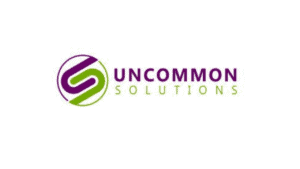The difference between a good sales team and a great one often comes down to the guidance they receive.
What are we talking about here? Sales coaching.
Solid sales coaching can be the catalyst that propels ordinary sales professionals into top performers. It’s part of a broader sales leadership approach where over 50% of sales leadership activities are coaching-oriented. Those who do it well thrive, and those who don’t…don’t.
Organizations that don’t prioritize sales coaching can expect stagnation and underperformance. That’s why sales managers and leaders must have a strong coaching strategy in place — yet it’s a practice that many organizations still struggle to fully leverage and implement.
Check out this sales scenario to understand what we’re talking about:
Jason, a newly hired salesperson, was energized and eager to conquer the sales world with his fresh ideas and boundless enthusiasm. Upon joining the team, he underwent the company’s standard sales training program, which was filled with broad strategies, techniques, and a plethora of sales methodologies.
Although the sales training gave Jason a solid foundation, he struggled to meet his sales quotas. The general training was informative but lacked the personal touch and deeper insights into how he could leverage his unique strengths in the sales process.
His sales manager recognized Jason’s potential and determination and provided him with tailored sales coaching.
This one-on-one coaching focused on identifying and refining Jason’s sales approach, emphasizing his natural communication skills, and teaching him how to understand customer needs better. Jason’s confidence and performance dramatically improved through continuous feedback, role-playing scenarios tailored to his challenges, and strategies designed to leverage his strengths.
He started exceeding his sales quotas and became a top performer on the team, setting a new benchmark for excellence. This transformation underscored the power of personalized sales coaching in unlocking a salesperson’s full potential.
Make sense?
This article aims to demystify the art of sales coaching, offering actionable advice and strategies to transform your sales force into an unstoppable revenue-generating machine.
What is Sales Coaching?
At its core, sales coaching is a continuous and collaborative process designed to improve sales performance at the individual or team level. The key objectives of sales coaching are to enhance performance, satisfaction, engagement, and the overall quality of the sales process.
Sales coaching, at a high level, involves:
- Facilitating participatory learning among the sales team
- Providing feedback and guidance on sales techniques, processes, and strategies
- Strategizing real-life situations for upcoming sales calls
- Identifying areas for improvement
- Setting clear goals and holding individuals accountable for their performance
- Developing skills and capabilities through training, role-playing, and other coaching methods
Overall, effective sales coaching should empower sales professionals to reach their full potential by giving them the tools, support, and motivation they need to succeed.
Sales Coaching vs. Sales Training: What’s the Difference?
Unlike sales training, which often provides a broad overview of sales techniques and strategies, coaching is highly personalized and focuses on improving specific skills and behaviors. We may be biased that our sales training methods are a bit unorthodox and more effective than traditional or subscription based methods, but the combination of training and live coaching really matters.
While sales training aims to impart knowledge and skills in a structured environment, coaching is a more ongoing, organic process that occurs in real-world sales environments.
Here’s a real-world scenario to break down the difference between sales coaching vs. sales training:
But what if sales coaching doesn’t come naturally to you as a sales manager? What if you don’t know how to pick the best sales training program to introduce into your organization? Don’t worry — that’s why sales consultants like us exist. We can act as an extension of your sales team to equip you with all the tools you need to make your sales team execute at a higher level.
Does that help you understand the difference between sales coaching vs. sales training?
The bottom line is that sales training is essential for instilling foundational skills and introducing new concepts, while sales coaching provides the nurturing and development necessary for these skills to be sharpened and refined to suit individual salespeople’s styles and contexts.
The Benefits of Effective Sales Coaching
Studies have consistently shown that organizations with effective coaching programs outperform those without.
Why? Take a look at this list of benefits below:
- Increased Sales Performance: Sales coaching directly contributes to better sales figures and higher revenue growth by improving the skills and tactics of sales personnel.
- Enhanced Sales Team Motivation: Tailored coaching strategies boost the morale and motivation of sales teams, leading to increased productivity and reduced turnover rates.
- Improved Sales Strategy Execution: Sales coaching ensures that strategies are devised and executed proficiently, aligning individual sales activities with the company’s overarching goals.
- Higher Customer Satisfaction Rates: By refining sales techniques and communication skills, coaching leads to better customer interactions and, consequently, higher satisfaction rates.
- Faster Onboarding of New Sales Representatives: Efficient coaching can significantly shorten the learning curve for new hires, enabling them to contribute to the company’s goals more quickly.
- Accelerated Growth: For mission-driven organizations looking to scale faster, bringing in a dedicated team of sales coaches can drastically improve your growth rate.
- Increased Adaptability to Market Changes: Continuous coaching helps sales teams adapt more swiftly and effectively to market dynamics and customer needs.
- Strengthened Team Cohesion: Sales coaching fosters a culture of learning and development that can improve team collaboration and cohesiveness.
- Better Identification and Leveraging of Individual Strengths: Personalized coaching allows managers to identify and cultivate the unique strengths of each salesperson, leading to a more effective sales force.
- Enhanced Problem-Solving Skills: Coaching provides sales professionals with the tools and thinking strategies to overcome obstacles and challenges creatively and efficiently.
- Greater Accountability and Goal Achievement: Regular coaching sessions encourage sales representatives to set targets, take responsibility for their actions, and strive consistently toward their goals.
Not convinced yet? That’s okay. We’ve got plenty more to share with you on the benefits of sales coaching. Keep reading!
When’s the best time to invest in sales training? Our team has the answers.
Key Components of a Successful Sales Coaching Program
A successful sales coaching program starts with your sales organization recognizing there’s room for growth and improvement, followed by a commitment to investing in and prioritizing coaching programs.
Sales Consultants who offer hands-on sales coaching will want you to agree to establish or already have in place a culture of learning and development within the organization. This involves setting clear expectations for continuous improvement, providing regular feedback, and creating opportunities for growth through training and mentoring. Any coaching efforts will be futile without this foundational piece of the puzzle.
Next, effective sales coaching requires that sales managers possess strong leadership skills and are well-versed in different coaching techniques. Coaching should consist of 50 percent of the sales leadership responsibilities. The sales manager must be able to identify individual strengths and weaknesses, provide constructive feedback to their teams, and develop customized strategies that align with each salesperson’s needs. For a sales consultant to effectively train sales managers in coaching, they must have a deep understanding of the organization’s unique context and tailor their coaching approach accordingly.
Finally, successful sales coaching programs prioritize accountability and follow-through.
Regular check-ins, progress tracking, and sales performance evaluations are fundamental to an effective program. When sales teams know their progress is monitored and their efforts are recognized, they are more likely to stay motivated and strive for excellence.
Strategies for Effective Sales Coaching
Effective sales coaching is both an art and a science.
It requires empathy, active listening, and a willingness to understand and respond to each salesperson’s unique needs. The best sales coaches combine active coaching strategies with the ability to connect with their teams on a personal level.
Key strategies include:
- Creating a Safe Space: setting a trusting and open environment for feedback and exploration, where salespeople feel comfortable expressing themselves and discussing their challenges.
- Active Listening: use one-on-one sales meetings to genuinely listen to sales reps’ concerns, feedback, and goals to fully understand their perspectives.
- Asking Powerful Questions: guiding the conversation with thought-provoking questions that encourage self-reflection and discovery of new strategies.
- Providing timely Feedback: go on ride-a-longs to offer constructive criticism promptly so salespeople can take immediate action to improve.
- Encouraging Autonomy: giving sales reps the autonomy and flexibility to explore new techniques, take calculated risks, and learn from their experiences.
- Leveraging Role Play Exercises: role-playing common scenarios allows salespeople to practice their skills in a safe and controlled environment.
- Utilizing Data: analyzing data and metrics to identify patterns, trends, and areas for improvement.
These are just a few strategies that have proven effective in sales coaching as part of your sales leadership activities. The key is finding the right mix of techniques that work for your team and continuously adjusting and improving to meet their evolving needs. With the right approach, any sales team can benefit from the transformative power of sales coaching.
Need some real-world examples of how sales coaching makes a difference? Hear directly from our customers.
Implementing Sales Coaching in Your Organization
Now, you clearly understand why sales coaching might be worth investing in for your organization. But how do you actually go about finding the right sales consulting company to help you implement an effective coaching program?
- Consider your budget and goals. What do you hope to achieve through sales coaching, and what resources are available to support this goal? Clearly define your objectives and budget to guide your search for the right consultant.
- Look for experience and expertise. Sales consultants should have a proven track record of success in coaching sales teams, with testimonials and case studies to back it up.
- Seek customization and personalization. Every organization is unique, so make sure the consultant takes the time to understand your specific needs and tailor their approach to fit your company’s culture and goals.
- Ask about their coaching process. A good sales consultant should have a structured yet flexible coaching process focusing on continuous improvement and measurable results.
- Evaluate communication and collaboration skills. Sales coaches must be strong communicators and collaborators, able to work closely with your team to understand their needs and provide ongoing support.
- Gather feedback from others. Reach out to other organizations or clients who have worked with the consultant to gather honest feedback on their coaching services.
- Get Answers to Frequently Asked Questions. Every organization will have unique questions and concerns about implementing sales coaching. Make sure the consultant is transparent and willing to address your specific needs.
By following these guidelines, you’ll be on your way to finding a reputable sales consulting company that can help take your team’s performance to the next level through effective sales coaching.
Final Thoughts
Sales coaching is not a one-size-fits-all solution. It’s a personalized and strategic approach to improving sales performance.
With the right consultant by your side, you can create a continuous learning and development culture that empowers sales teams to reach their full potential. Don’t underestimate the power of effective sales coaching — it could be the game-changing factor that sets your organization apart from the competition.
So why wait? Start exploring your options today and see the positive impact sales coaching can have on your business.
Frequently Asked Questions (FAQs)
What is Sales Coaching?
Sales coaching is a dynamic, personalized process aimed at enhancing the performance and capabilities of sales teams. It involves targeted, one-on-one interactions that focus on developing sales skills, strategies, and techniques, ultimately leading to improved sales outcomes and business growth.
What’s the difference between Sales Coaching and Sales Training?
While sales training often involves delivering standardized material to groups, sales coaching is personalized and iterative. It focuses on the continuous development of individuals based on their unique strengths and weaknesses, fostering a culture of ongoing improvement and adaptation.
What are the benefits of implementing Sales Coaching?
Organizations implementing sales coaching can expect various benefits, including increased sales performance, higher employee engagement and retention, improved team morale, and enhanced adaptability to market changes. Sales coaching also promotes a culture of accountability, strategic thinking, and proactive problem-solving among sales teams.
How long does it typically take to see results from Sales Coaching?
The timeline to see tangible outcomes from sales coaching can vary, depending on the specific goals and the current performance level of the sales team. However, many organizations notice improvements within the first three to six months of consistent sales coaching efforts.
Can Sales Coaching be conducted remotely?
Yes, sales coaching can effectively be conducted remotely. Advances in technology and communication tools have made it possible to conduct personalized coaching sessions and maintain continuous communication without the need for physical presence. This flexibility allows sales coaching to seamlessly integrate into the daily routines of sales professionals.
How do we measure the success of our Sales Coaching program?
Success can be measured through a variety of metrics, including but not limited to sales performance indicators (revenue growth, deal closure rates), skill development (as assessed through role-playing and feedback), sales rep engagement and satisfaction levels, and the overall impact on business objectives. Regular assessments and adjustments are crucial to ensuring the program’s effectiveness.
Is Sales Coaching worth investing in for every member of our sales team?
Sales coaching is highly adaptable and can benefit sales professionals at all levels, from new hires to seasoned veterans. Its personalized nature allows it to be tailored to meet each individual’s unique needs and goals, fostering personal and professional growth across the board.







